Within the past few hours, The BRAD BLOG has learned, a Federal District Court has ruled against the National Federation for the Blind (NFB) who had filed suit against Volusia County, Florida earlier this month to force the county to use paperless Electronic Voting Machines in the upcoming fall elections there.
The court order denying NFB's motion has been obtained by The BRAD BLOG and is available here [PDF].
The BRAD BLOG has also learned that the NFB has decided late in the day to file an emergency appeal to that Federal District Court decision.
This debate, and the decision by the District Court in Orlando, could have far-reaching implications in the national debate concerning touchscreen voting machines for which the NFB has been an advocate nationwide.
The objectivity in regard to the NFB's national campaign for paperless touchscreen voting machines, or DRE's, has been questioned by several groups due to the NFB's receipt of a $1 Million contribution from America's largest voting machine company, Diebold, Inc.
On the ground in Volusia, another disability advocacy group, the Handicapped Adults of Volusia County (HAVC), says they are "opposed to spending money on machines that do not provide a paper record of a person's vote," according to a report by The New Standard.
HAVC joined with the Electronic Frontier Foundation in a court brief which opposed the now-rejected motion brought by the NFB. The decision of the suit will be stayed pending the NFB's emergency appeal.
Earlier today, NFB member and vice-president of the American Association of People with Disabilities (AAPD), Jim Dickson --- who has been very outspoken nationally in support of the paperless touchscreen voting machines made by Diebold --- told The BRAD BLOG that U.S. District Judge John Antoon II was wrong in his verdict siding against the NFB and in favor of Volusia County's decision to not purchase voting machines made by Diebold.
Dickson, who has also been alleged to have accepted money from Diebold, which he has denied, said the decision was "crap"...
"The Florida constitution says in it that there shall be a secret ballot," Dickson complained. "And a Federal court ruled that there's no right to a secret ballot. The court chose to say that it doesn't apply which is just appalling."
Dickson and the NFB both argue that Florida law requires all citizens must be able to cast their vote in secret. Without Diebold machines in Florida, which have audible ballots, they claim that help to verify their ballots would be required from elections officials in violation of their civil rights to vote in secret.
Yet, Judge Antoon says in his decision [PDF] that the statute NFB relied on in their case "merely 'authorize[s] the use of electronic...voting systems'...and provides for criteria for certifying such systems in the event that they are purchased."
In other words, since there has been no purchase of an electronic voting system by the county yet, Antoon decided, the particular statute invoked by NFB "simply has no bearing."
According to Dickson, however, the Americans with Disabilities Act [ADA] should apply in this case. "The court ruled that the ADA doesn't apply. Which is crap...The court is just wrong. We had courts that ruled that people aren't entitled to the right to vote. We had courts that ruled that blacks were 3/5's of a person. They're just wrong and it's appalling."
But David Dixon of HAVC, told us that "these guys have gone...a little bit over the edge, I'd say. Comparing this ruling to slavery and so forth."
Dixon, who, like Dickson, is blind, says that the Help America Vote Act (HAVA) deadline for Volusia to purchase new voting machines is not until January 1, 2006. Plenty of time, Dixon contends, for the AutoMARK voting system marketed by Diebold competitor ES&S to be certified in the state of Florida by the HAVA deadline.
The AutoMARK system is said to produce both a paper ballot as well as meet Federal guidelines for disabled voters.
As well, Dixon claims that his discussions with members of the Volusia County Council confirm that the county could have AutoMARK machines in place by the October '05 municipal elections if Florida expedites their certification procedures.
"The Diebold machines will accommodate the visually impaired," says Dixon who claims that his group also wants secret ballots, but points out that "it does not accommodate all disabilities, which the Help America Vote Act calls for. The AutoMARK system [which produces a paper ballot], when it is certified, will be able to accommodate all of those with disabilities, not just the blind."
"We want all voters to have a secret and verifiable ballot," explains Dixon. "That's what we want, that's what we're really after. Whether they are handicapped or not."
Dixon was quick to add, "I'm totally blind, and people ask me why I want a paper ballot...I want checks and balances. I want the vote to be verifiable."
In regard to the $1 Million said to have been given by Diebold to the NFB, a source who claimed to be familiar with the transaction, but who chose to speak about the issue only "off the record", confirmed the donation, but said that it was made prior to Diebold's entering the Voting Machine Industry. The source said the money was received while the group was working with Diebold in regard to accessibility for the blind to ATM machines, which Diebold also makes.
The source acknowledged that the enormous donation "looks terrible," but added that "I don't think the Federation is for sale or particularly influenced in their position because of Diebold's contribution to their building."
The BRAD BLOG has not yet been able to confirm the timeframe for Diebold's donation to the NFB.
UPDATE: According to Wired News, the timeframe for the NFB/Diebold donation is as follows:
As well, Dickson told us today that his group, the AAPD, has taken no money from Diebold. Yet Wired reported in their same story from October '04:
When asked in April, Jim Dickson, vice president of government affairs for the AAPD, told Wired News his organization had never received money from voting companies. But in June, he told The New York Times the organization had gotten money.
Dickson didn't disclose the gifts at hearings in California this year, where he tried to convince officials not to decertify touch-screen voting machines made by Diebold and other companies. Nor did he disclose the information in Washington in May when he participated in hearings with the federal Election Assistance Commission.
HVAC's David Dixon will be a guest on this weekend's BRAD SHOW to discuss the matter.
Jim Dickson has declined our invitation to debate with Dixon on the show, expressing his feelings that he thought an NFB advocate from Florida would be more appropriate. Dickson is based in Washington D.C.
We have invited a member of NFB's Florida contingent to be on the show to discuss the matter along with Dixon. Stay tuned...


 Bad Climate News for Home, Car Owners; Good Labor News for Workers in the South: 'BradCast' 4/18/24
Bad Climate News for Home, Car Owners; Good Labor News for Workers in the South: 'BradCast' 4/18/24 'Green News Report' 4/18/24
'Green News Report' 4/18/24
 SCOTUS Suddenly Worried About Overcriminalization ... for J6 Insurrectionists: 'BradCast' 4/17/24
SCOTUS Suddenly Worried About Overcriminalization ... for J6 Insurrectionists: 'BradCast' 4/17/24 'Trump Media' Plummeting, MAGA Buyers Losing Life Savings: 'BradCast' 4/16/24
'Trump Media' Plummeting, MAGA Buyers Losing Life Savings: 'BradCast' 4/16/24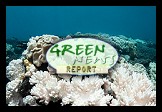 'Green News Report' 4/16/24
'Green News Report' 4/16/24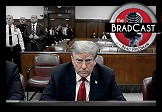 Trump's First Criminal Trial, for Cheating in 2016, Begins in NY: 'BradCast' 4/15/24
Trump's First Criminal Trial, for Cheating in 2016, Begins in NY: 'BradCast' 4/15/24 Sunday 'Party Like It's 1864' Toons
Sunday 'Party Like It's 1864' Toons Biden Closes 'Gun Show Loophole'; Repubs Turn Desperate: 'BradCast' 4/11/24
Biden Closes 'Gun Show Loophole'; Repubs Turn Desperate: 'BradCast' 4/11/24  'Green News Report' 4/11/24
'Green News Report' 4/11/24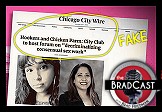 'Pink Slime': Fake 'Local News' Sites Proliferating in Advance of Election: 'BradCast' 4/10/24
'Pink Slime': Fake 'Local News' Sites Proliferating in Advance of Election: 'BradCast' 4/10/24 Dirty Tricks and the Dirtiest Candidate Of All Time: 'BradCast' 4/9/24
Dirty Tricks and the Dirtiest Candidate Of All Time: 'BradCast' 4/9/24 'Green News Report' 4/9/24
'Green News Report' 4/9/24 'Titanic Law' Reform Just Tip of Iceberg in Quest for Key Bridge Accountability: 'BradCast' 4/8/24
'Titanic Law' Reform Just Tip of Iceberg in Quest for Key Bridge Accountability: 'BradCast' 4/8/24 Sunday 'Dark Days Indeed' Toons
Sunday 'Dark Days Indeed' Toons Trump's Very Bad Day in Court(s), Other Good (& Less Good) News: 'BradCast' 4/4
Trump's Very Bad Day in Court(s), Other Good (& Less Good) News: 'BradCast' 4/4 'Green News Report' 4/4/24
'Green News Report' 4/4/24 WI Supremes May Restore Drop-Box Voting
WI Supremes May Restore Drop-Box Voting WI Voters Approve Election Crippling Ballot Measures: 'BradCast' 4/3/24
WI Voters Approve Election Crippling Ballot Measures: 'BradCast' 4/3/24  Politico's Josh Gerstein Owes a Retraction
Politico's Josh Gerstein Owes a Retraction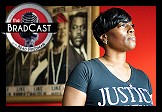 More GOP Election Fraud; Overdue Justice for Crystal Mason: 'BradCast' 4/2/24
More GOP Election Fraud; Overdue Justice for Crystal Mason: 'BradCast' 4/2/24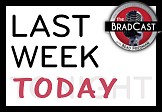 Last Week Today with OG Bloggers:
Last Week Today with OG Bloggers: It's Up to You, New York: 'BradCast' 3/21/24
It's Up to You, New York: 'BradCast' 3/21/24 'It All Comes Down to Brett and Amy': 'BradCast' 3/20/24
'It All Comes Down to Brett and Amy': 'BradCast' 3/20/24 American 'Bloodbath': 'BradCast' 3/19/24
American 'Bloodbath': 'BradCast' 3/19/24
 VA GOP VOTER REG FRAUDSTER OFF HOOK
VA GOP VOTER REG FRAUDSTER OFF HOOK Criminal GOP Voter Registration Fraud Probe Expanding in VA
Criminal GOP Voter Registration Fraud Probe Expanding in VA DOJ PROBE SOUGHT AFTER VA ARREST
DOJ PROBE SOUGHT AFTER VA ARREST Arrest in VA: GOP Voter Reg Scandal Widens
Arrest in VA: GOP Voter Reg Scandal Widens ALL TOGETHER: ROVE, SPROUL, KOCHS, RNC
ALL TOGETHER: ROVE, SPROUL, KOCHS, RNC LATimes: RNC's 'Fired' Sproul Working for Repubs in 'as Many as 30 States'
LATimes: RNC's 'Fired' Sproul Working for Repubs in 'as Many as 30 States' 'Fired' Sproul Group 'Cloned', Still Working for Republicans in At Least 10 States
'Fired' Sproul Group 'Cloned', Still Working for Republicans in At Least 10 States FINALLY: FOX ON GOP REG FRAUD SCANDAL
FINALLY: FOX ON GOP REG FRAUD SCANDAL COLORADO FOLLOWS FLORIDA WITH GOP CRIMINAL INVESTIGATION
COLORADO FOLLOWS FLORIDA WITH GOP CRIMINAL INVESTIGATION CRIMINAL PROBE LAUNCHED INTO GOP VOTER REGISTRATION FRAUD SCANDAL IN FL
CRIMINAL PROBE LAUNCHED INTO GOP VOTER REGISTRATION FRAUD SCANDAL IN FL Brad Breaks PA Photo ID & GOP Registration Fraud Scandal News on Hartmann TV
Brad Breaks PA Photo ID & GOP Registration Fraud Scandal News on Hartmann TV  CAUGHT ON TAPE: COORDINATED NATIONWIDE GOP VOTER REG SCAM
CAUGHT ON TAPE: COORDINATED NATIONWIDE GOP VOTER REG SCAM CRIMINAL ELECTION FRAUD COMPLAINT FILED AGAINST GOP 'FRAUD' FIRM
CRIMINAL ELECTION FRAUD COMPLAINT FILED AGAINST GOP 'FRAUD' FIRM RICK SCOTT GETS ROLLED IN GOP REGISTRATION FRAUD SCANDAL
RICK SCOTT GETS ROLLED IN GOP REGISTRATION FRAUD SCANDAL VIDEO: Brad Breaks GOP Reg Fraud Scandal on Hartmann TV
VIDEO: Brad Breaks GOP Reg Fraud Scandal on Hartmann TV RNC FIRES NATIONAL VOTER REGISTRATION FIRM FOR FRAUD
RNC FIRES NATIONAL VOTER REGISTRATION FIRM FOR FRAUD EXCLUSIVE: Intvw w/ FL Official Who First Discovered GOP Reg Fraud
EXCLUSIVE: Intvw w/ FL Official Who First Discovered GOP Reg Fraud GOP REGISTRATION FRAUD FOUND IN FL
GOP REGISTRATION FRAUD FOUND IN FL


































